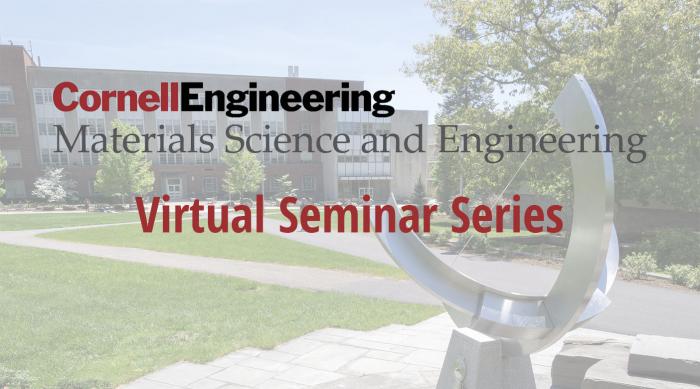
MSE Virtual Seminar: Hanyu Zhu, Rice University
Description
Controlling optoelectronic properties with structural symmetry
Hanyu Zhu, Rice University

Many electronic and quantum properties of materials are directly related to the structural symmetry of the atomic lattices. For example, if a material’s band structure contains crossing point (Dirac point), breaking its inversion symmetry may either cause a metal-insulator transition (in two-dimensional lattice), or produce a topological Weyl semimetal (in three-dimensional lattice). Similar symmetry-induced properties apply to a wide range of excitations including phonons and magnons. Therefore, it is important to efficiently identify and control the structural symmetry as well as the corresponding optical, electric, thermal, and magnetic signatures. In this talk, I will introduce our experimental effort to manipulate two-dimensional (2D) lattices and spectroscopically probe their optoelectronics. Because the van der Waals 2D lattices are physically and chemically stable while entirely exposed to external stimuli, we can control them through strong electric field and heavy electrostatic/optical doping more easily than bulk lattices. In the first example, doping inverts the relative free energy between the inversion symmetric and inversion asymmetric structures of MoTe2, thus triggering a reversible phase transition. Further, an electric field can switch the polarization and orientation of the asymmetric structure in another polymorphic chalcogenide In2Se3. Then I will show how circularly polarized light excitation dynamically imprints valley-spin polarization and atomic rotation in asymmetric hexagonal chalcogenides and halides. Finally, I will discuss the implications of these discoveries to ultrafast quantum control.
Hanyu Zhu joined Rice University in 2018 as an assistant professor at the Department of Materials Science and NanoEnigneering. Before that he obtained Ph.D. in the Applied Science & Technology program from the University of California at Berkeley. In 2019 he received the ORAU Ralph E. Powe Junior Faculty Enhancement Award.
For Webinar information please contact Kyle Page (kmp265@cornell.edu)

